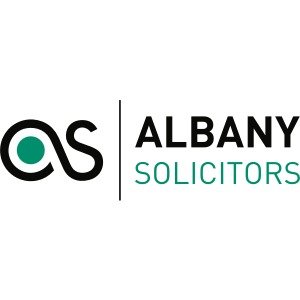Best Tax Increment Financing Lawyers in Bristol
Share your needs with us, get contacted by law firms.
Free. Takes 2 min.
List of the best lawyers in Bristol, United Kingdom
About Tax Increment Financing Law in Bristol, United Kingdom
Tax Increment Financing (TIF) is a public financing method that is used to subsidize infrastructure and community-improvement projects in many cities across the United Kingdom, including Bristol. It is designed to stimulate local economic development and urban renewal by capturing future gains in taxes generated by the increase in property values within a designated area. In Bristol, TIF aims to support sustainable growth and revitalization, creating opportunities for new investments and public-private partnerships that benefit communities.
Why You May Need a Lawyer
Engaging a lawyer who specializes in Tax Increment Financing may be necessary in various situations. For property developers and investors, legal expertise can help navigate the complexities of TIF agreements and ensure compliance with statutory requirements. Municipalities may seek legal advice when establishing or managing TIF districts to comply with local government regulations. Additionally, property owners and community groups may require legal assistance to protect their interests, negotiate better terms or resolve disputes related to TIF projects.
Local Laws Overview
Understanding the local laws regarding Tax Increment Financing in Bristol is crucial for all parties involved. Key aspects include:
- Designated Areas: TIF is applicable in specific zones identified by the local council where infrastructure improvements are required.
- Financing Terms: TIF agreements outline the financial terms, including the duration, percentage of tax increments, and eligible expenditures.
- Public Consultations: The process often involves community engagement and public consultations to ensure that projects align with local needs and priorities.
- Compliance and Reporting: Entities involved are required to comply with detailed reporting mechanisms to ensure transparency and accountability.
Frequently Asked Questions
What is the primary purpose of TIF?
The primary purpose of TIF is to stimulate economic development and infrastructure improvement by using future tax revenue increases from enhanced property values in the designated area.
How is a TIF district created in Bristol?
A TIF district is typically established by the local council, following a detailed assessment and consultation process to determine the need for redevelopment and the project's potential impact.
Who can benefit from TIF projects?
Various stakeholders benefit, including property developers, local businesses, and the community, through job creation, better infrastructure, and potentially higher property values.
Are there risks associated with TIF?
Risks exist, such as anticipated tax increments falling short, leading to funding gaps, or projects not delivering the expected community benefits.
What role do local councils play in TIF?
Local councils are crucial in setting up, approving, and managing TIF projects, ensuring they align with broader urban development plans and ensuring compliance with regulations.
How does TIF impact existing taxpayers?
While the intention is for the incremental taxes to fund improvements, there can be concerns about the equitable distribution of tax burdens and ensuring the broader public interest is served.
Can TIF funds be used for any project?
No, TIF funds are typically restricted to infrastructure and public improvement projects within the designated district, as outlined in the TIF agreement.
How long do TIF agreements last?
The duration of a TIF agreement can vary but often lasts 20-25 years, allowing enough time for the anticipated tax increments to finance the proposed improvements.
Do TIF projects require environmental assessments?
Yes, typically environmental and socio-economic assessments are mandatory to ensure that the developments are sustainable and benefit the community.
Can TIF agreements be renegotiated?
Renegotiation is possible, especially if the project scope changes significantly or if unforeseen economic circumstances arise, but it requires the consent of all involved parties.
Additional Resources
For additional information and support, consider reaching out to:
- Bristol City Council: For guidelines and approvals related to TIF projects.
- Local Chambers of Commerce: Networking and informational resources about potential business opportunities through TIF.
- Legal Firms Specializing in Public Finance: For professional legal advice on specific cases.
- Community Development Organizations: Support and advocacy for community interests in TIF projects.
Next Steps
If you need legal assistance in the field of Tax Increment Financing, consider the following steps:
- Identify Your Needs: Clearly define your specific requirements and objectives related to TIF.
- Consult with Experts: Seek out lawyers with experience in TIF and related public finance issues.
- Prepare Documents: Gather any relevant documentation and information regarding the project and any existing agreements.
- Schedule a Meeting: Arrange consultations with potential legal advisors to discuss your case and receive tailored advice.
- Review Options: Analyze the guidance provided and decide on the best approach moving forward with your TIF project or concerns.
Lawzana helps you find the best lawyers and law firms in Bristol through a curated and pre-screened list of qualified legal professionals. Our platform offers rankings and detailed profiles of attorneys and law firms, allowing you to compare based on practice areas, including Tax Increment Financing, experience, and client feedback.
Each profile includes a description of the firm's areas of practice, client reviews, team members and partners, year of establishment, spoken languages, office locations, contact information, social media presence, and any published articles or resources. Most firms on our platform speak English and are experienced in both local and international legal matters.
Get a quote from top-rated law firms in Bristol, United Kingdom — quickly, securely, and without unnecessary hassle.
Disclaimer:
The information provided on this page is for general informational purposes only and does not constitute legal advice. While we strive to ensure the accuracy and relevance of the content, legal information may change over time, and interpretations of the law can vary. You should always consult with a qualified legal professional for advice specific to your situation.
We disclaim all liability for actions taken or not taken based on the content of this page. If you believe any information is incorrect or outdated, please contact us, and we will review and update it where appropriate.













